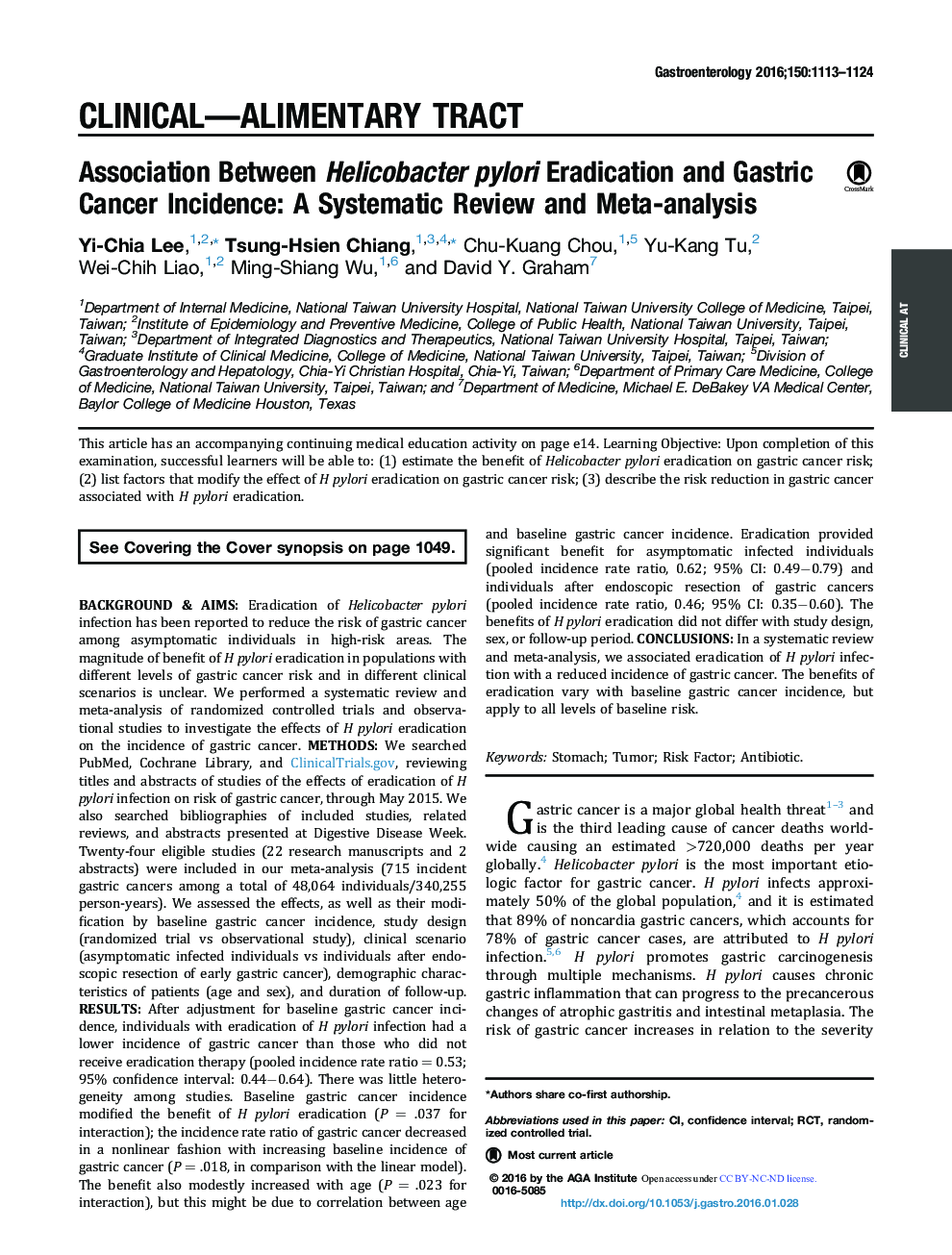| کد مقاله | کد نشریه | سال انتشار | مقاله انگلیسی | نسخه تمام متن |
|---|---|---|---|---|
| 6092567 | 1209779 | 2016 | 17 صفحه PDF | دانلود رایگان |
Background & AimsEradication of Helicobacter pylori infection has been reported to reduce the risk of gastric cancer among asymptomatic individuals in high-risk areas. The magnitude of benefit of H pylori eradication in populations with different levels of gastric cancer risk and in different clinical scenarios is unclear. We performed a systematic review and meta-analysis of randomized controlled trials and observational studies to investigate the effects of H pylori eradication on the incidence of gastric cancer.MethodsWe searched PubMed, Cochrane Library, and ClinicalTrials.gov, reviewing titles and abstracts of studies of the effects of eradication of H pylori infection on risk of gastric cancer, through May 2015. We also searched bibliographies of included studies, related reviews, and abstracts presented at Digestive Disease Week. Twenty-four eligible studies (22 research manuscripts and 2 abstracts) were included in our meta-analysis (715 incident gastric cancers among a total of 48,064 individuals/340,255 person-years). We assessed the effects, as well as their modification by baseline gastric cancer incidence, study design (randomized trial vs observational study), clinical scenario (asymptomatic infected individuals vs individuals after endoscopic resection of early gastric cancer), demographic characteristics of patients (age and sex), and duration of follow-up.ResultsAfter adjustment for baseline gastric cancer incidence, individuals with eradication of H pylori infection had a lower incidence of gastric cancer than those who did not receive eradication therapy (pooled incidence rate ratio = 0.53; 95% confidence interval: 0.44â0.64). There was little heterogeneity among studies. Baseline gastric cancer incidence modified the benefit of H pylori eradication (P = .037 for interaction); the incidence rate ratio of gastric cancer decreased in a nonlinear fashion with increasing baseline incidence of gastric cancer (P = .018, in comparison with the linear model). The benefit also modestly increased with age (P = .023 for interaction), but this might be due to correlation between age and baseline gastric cancer incidence. Eradication provided significant benefit for asymptomatic infected individuals (pooled incidence rate ratio, 0.62; 95% CI: 0.49â0.79) and individuals after endoscopic resection of gastric cancers (pooled incidence rate ratio, 0.46; 95% CI: 0.35â0.60). The benefits of H pylori eradication did not differ with study design, sex, or follow-up period.ConclusionsIn a systematic review and meta-analysis, we associated eradication of H pylori infection with a reduced incidence of gastric cancer. The benefits of eradication vary with baseline gastric cancer incidence, but apply to all levels of baseline risk.
Journal: Gastroenterology - Volume 150, Issue 5, May 2016, Pages 1113-1124.e5
